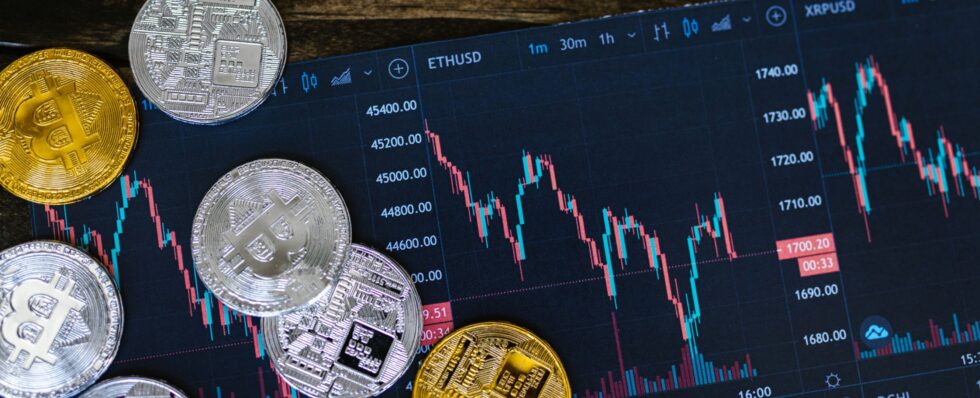Why are cryptocurrencies not only an opportunity but also a huge risk for your money

Cryptocurrencies have become both a symbol of financial innovation and a source of spectacular gains and losses. In 2025, the market is undergoing a new transformation: regulation is tightening, investors are facing strict compliance requirements, and at the same time gaining access to new financial tools. Opportunities for profit exist, but they come with significant uncertainty. Every step in the digital asset world requires understanding not only the technology but also the legal, tax, and market risks. In Germany, cryptocurrency represents a delicate balance between opportunity and danger, as noted by G.business.
Opportunities offered by cryptocurrencies
Digital assets offer a wide range of opportunities previously unavailable in traditional banking. They are not just investment instruments but also an efficient means for fast, low-cost cross-border transfers. Decentralization removes the need for intermediaries, while smart contracts automate transactions and enforce agreements. The growth of DeFi (decentralized finance) and NFTs (non-fungible tokens) has created entirely new markets and monetization models. As infrastructure continues to expand, cryptocurrencies are becoming more accessible to everyday users.
Main advantages:
- Potential for high returns with successful investments.
- Decentralization and independence from banks.
- Transaction transparency through blockchain technology.
- Possibility of anonymous payments (depending on the coin).
- Growing infrastructure — from crypto cards to POS terminals.
Risks that accompany cryptocurrencies
Despite their potential, cryptocurrencies come with serious threats that can lead to complete capital loss. Price volatility makes the market unpredictable, even for experienced traders. Cyberattacks on exchanges and wallets have resulted in multimillion-dollar losses. The absence of government deposit insurance increases the danger for retail investors. Moreover, regulations can change quickly, potentially restricting access to certain assets or services.
Key risks:
- Sharp price swings and sudden loss of investment.
- No deposit insurance like in traditional banks.
- Fraudulent projects and scam ICOs.
- Loss of access to a wallet or private keys.
- Legal uncertainty in certain jurisdictions.
Forecasts for 2025–2026
Analysts agree that over the next two years, the cryptocurrency market will be shaped by global economic conditions and the EU’s MiCA regulation. Institutional investor interest may support price growth in major coins, while geopolitical instability and cyberattacks could cause sudden crashes. Stablecoins and DeFi projects are expected to play an increasingly important role in the ecosystem. High-risk altcoins will remain a tool for seasoned traders who can react quickly to market changes.
Main forecasts:
- Bitcoin: expected range $55,000–$80,000 with sustained institutional interest.
- Ethereum: potential growth driven by DeFi and network scaling.
- Stablecoins: stricter regulation but increased trust.
- Altcoins: only projects with real-world use cases will survive.
- Short-term crashes remain possible due to geopolitical or security events.
Regulation of cryptocurrencies in the EU and Germany
Since December 30, 2024, the EU has fully implemented the MiCA (Markets in Crypto-Assets) framework, fundamentally changing the way crypto companies operate. In Germany, this has translated into mandatory licensing for all exchanges and custody services. Regulators have tightened rules on advertising and required full customer verification. The European Securities and Markets Authority (ESMA) has warned against misleading claims about regulatory status. Today, only companies with official approval can operate legally.
What this means for investors:
- Only licensed providers (CASPs) can operate.
- Mandatory Know Your Customer (KYC) procedures.
- Ban on misleading clients about regulatory status.
- Stablecoins can only be issued and traded with authorization.
- Exchanges like Bitpanda, OKX, Crypto.com have already secured EU licenses.
Taxation of cryptocurrency in Germany
German tax law for cryptocurrency is based on the holding period and type of income. If you hold a coin for more than one year, your profit from selling it is tax-free. For sales within one year, there is a €1,000 profit threshold before tax applies. Income from staking, mining, and airdrops is always taxable. Investors must keep detailed transaction records, and tax authorities can request full histories for several years.
Current rules:
- Held the coin more than one year — profit is tax-free.
- Sold within one year with profit under €1,000 — no tax.
- Profit over €1,000 for sales under a year — taxed at your income tax rate (up to 45%).
- Income from staking, mining, airdrops — always taxable.
- €600 annual exemption limit for other private transactions.
How to invest safely
Minimizing risks requires combining technical security measures with financial literacy. Investors should use only licensed exchanges and verified wallets. Splitting assets between hot and cold storage reduces the risk of total loss. A sound investment strategy should balance both long-term and short-term goals. Staying up to date with regulatory and tax changes is essential for anyone operating in this market.
Recommendations:
- Never invest more than you can afford to lose.
- Split assets between cold and hot wallets.
- Verify exchange licenses on the BaFin website.
- Research projects and teams before buying tokens.
- Monitor changes in MiCA rules and tax laws.
Comparison of popular cryptocurrencies by risk and use
| Cryptocurrency | Growth Potential | Volatility | Regulatory Risk | Primary Use |
|---|---|---|---|---|
| Bitcoin (BTC) | High | Medium | Low | Store of value, payments |
| Ethereum (ETH) | High | Medium | Medium | Smart contracts, DeFi |
| Ripple (XRP) | Medium | Medium | High | Payment systems |
| Solana (SOL) | High | High | Medium | NFT, DeFi |
| Dogecoin (DOGE) | Medium | Very High | High | Speculation |
Common mistakes made by investors
Most losses occur due to the same repeated mistakes, often caused by lack of knowledge or emotional decision-making. Buying at the peak due to FOMO (fear of missing out) is a common trap. Keeping all funds on an exchange exposes you to hacking risks. Ignoring tax obligations can lead to fines. Many investors also fail to create an exit strategy, leading to missed opportunities to lock in profits.

Frequent mistakes:
- Buying at peak prices out of FOMO.
- Keeping all assets on an exchange.
- Ignoring taxes and reporting duties.
- Investing in “hype” projects without due diligence.
- Lacking a clear profit-taking strategy.
In Germany in 2025, cryptocurrencies are both an innovative financial tool and a high-risk investment zone. The potential for returns is significant, but without understanding tax rules, MiCA regulations, and security threats, investments can quickly turn into losses. Only a combination of knowledge, discipline, and reliable information sources will allow investors to get the most out of the crypto market while keeping risks under control.
Latest events in politics and global economy at Cryptonews – practical tips on how to act and invest. Read: What is Bitcoin halving and why it affects cryptocurrency prices in Germany in 2025